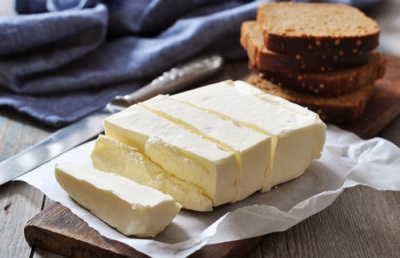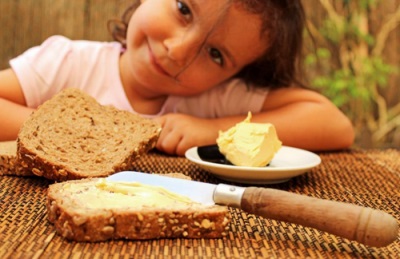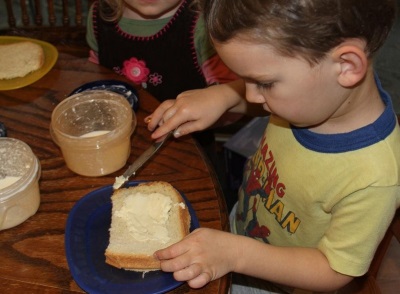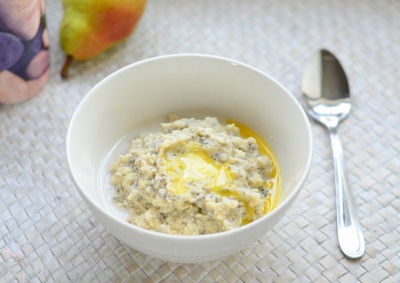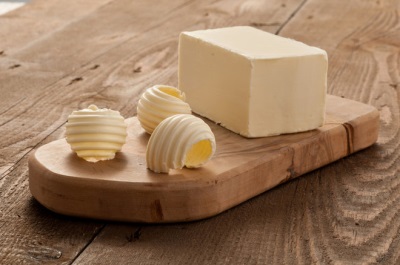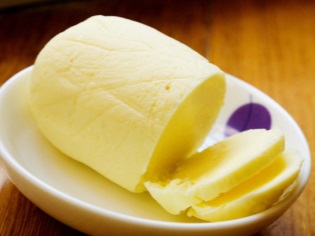At what age can you give butter to a child?
Butter belongs to the products that include the nutrition of babies in the first year of life. Therefore, any mother should know when to start giving oil to the baby, whether it is useful for a child under one year old, and what to do if a crumb eats a lot of such a product and constantly asks for it.
Benefit
- Butter is an additional source of energy, because it contains a lot of healthy fats, which are well absorbed in the children's body.
- Cholesterol, produced by a child from natural butter, participates in the formation of many compounds in the children's body, and also has a positive effect on intellectual development.
- The child will receive fat-soluble vitamins (first of all, A, E and D) from butter, which are important for the processes of growth, strengthening of bones, improving eyesight and skin condition.
- The use of butter in the period after the illness helps to quickly restore strength and strengthen the immune system.
- This product provides the body with salts of chromium, zinc, selenium, manganese and other minerals.
- Due to the presence in the natural oil of linoleic acid, this food product opposes the development of cancer.
- Regular consumption of butter in small amounts helps to cope with respiratory diseases and prevents the development of asthma.
- Ghee has a positive effect on digestion, preventing constipation and colic, and also contributes to the proper development of the brain and reproductive system. It is recommended for children with lactose intolerance.
Minuses
- For butter, as well as for other dairy products, the child may develop an allergy.
- The use of butter in too much of a negative effect on metabolic processes and provokes obesity.
- Excess oil in the diet worsens the condition of the blood vessels and heart function.
For more information about the benefits and dangers of butter, see the program "To live healthy."
From what age do they give butter to children?
Butter appears in the feeding of a baby while breastfeeding at 8 months of age. Babies who receive an adapted mixture, such a product is introduced into the diet a little earlier - as early as 6 months. The popular doctor Komarovsky recommends introducing butter into the supplemental food no earlier than 8 months after the child has become acquainted with kefir, cottage cheese and cereals.
Acquaintance with butter should occur after the child tries vegetables, cereals and vegetable oil. Most often, butter is included in complementary foods as a supplement to cereal porridge, since it not only improves its taste., but also has a positive effect on the digestibility of starch from cereals. At the same time add oil to grub should be before serving (do not cook with grits, but put in the already prepared dish).
The first portion of butter for babies is about 1 gram.That corresponds to a small amount of product at the end of the knife. With normal portability, the portion of the product is gradually increased until it is 1 teaspoon (about 5 g of butter).
How much butter to give to children?
The rate per day for children younger than a year is:
6 months | 1 g for babies on artificial feeding. |
7 months | From 3 to 5 g for an artificial baby. |
8 months | 1 g for a breastfed baby and 3-5 g for formula-fed babies. |
9 months | From 3 to 5 g for a child on any feeding. |
10-12 months | 5 g for babies both breastfed and bottle-fed. |
Further, the amount of oil in the daily diet gradually increase. Children 1-3 years old give from 6 to 10 g of butter per day, adding it to the porridge and using when cooking souffles, puddings, casseroles and other dishes. At the age of 3, a child usually receives 10-15 grams of such a dairy product daily. It is added to cooked cereals, used in baking and spread on sandwiches.
Some children constantly ask mothers for pieces of butter, and parents worry about whether it is normal. Often the reason why children love such a product is the need for energy and nutrients, and therefore babies 1-3 years old often show a love for butter.
Many mothers also think about what vitamins are not enough if the child eats butter with spoons. And indeed, the lack of fat-soluble vitamin substances, which are rich in oil, can also provoke a desire to eat such a product in larger quantities. Nevertheless, it is not necessary to exceed the daily norms of oil recommended by pediatricians, so as not to harm the digestive tract of the baby.
How to choose baby oil?
The oil you are going to give your child should be made only from cream. Buy a product with a fat content of 82.5%With a characteristic creamy smell and yellowish color. Spreads for baby food are absolutely not suitable.
Products with the addition of margarine can be included in the diet of children in small quantities only from 3 years of age.
How to make butter with your own hands?
Without a doubt, children should be given only natural products. To make sure that the butter that is added to the baby porridge is useful and made from cream, many mothers decide to make this product on their own.
Make it simple enough, you only need to take 500 ml of heavy cream and whip in a blender for 5 minutes before stratification of the product into a solid mass and buttermilk. Drain the milk and rinse the oil under cold water to form a ball out of the product. Store it in a refrigerator in parchment or in a glass or ceramic container.
Step by step recipe for cooking butter at home, see the following video.

